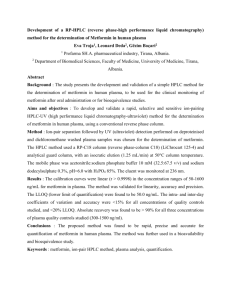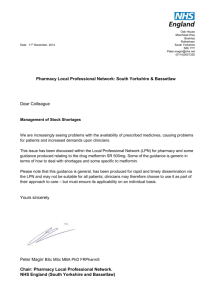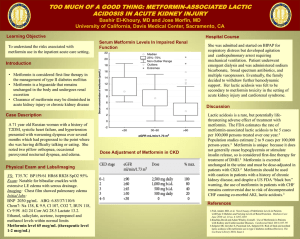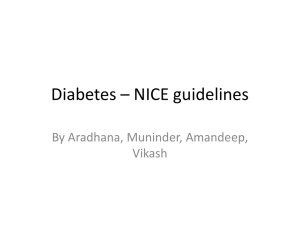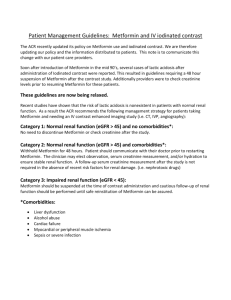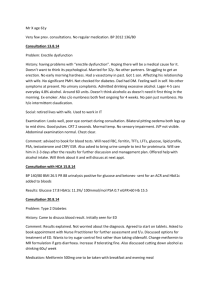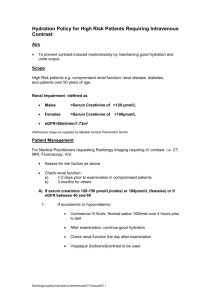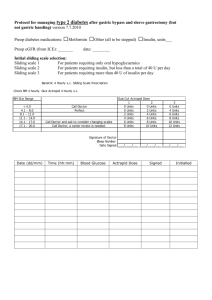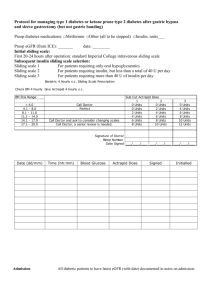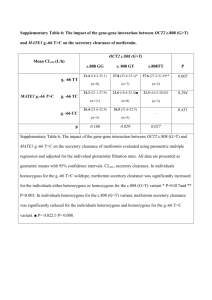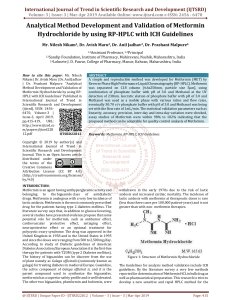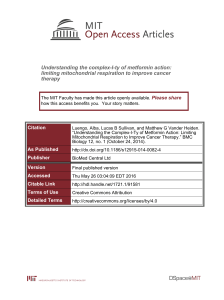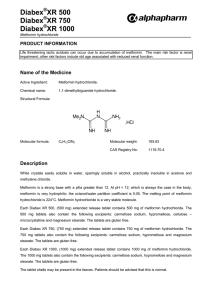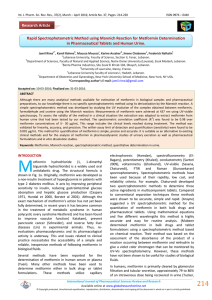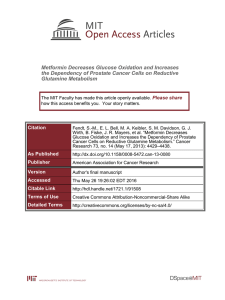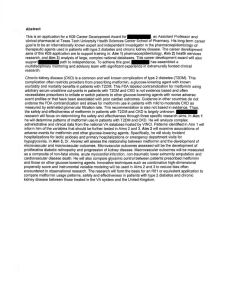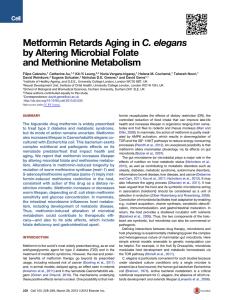Una Glamoclija presentation (30.10.2015)
advertisement
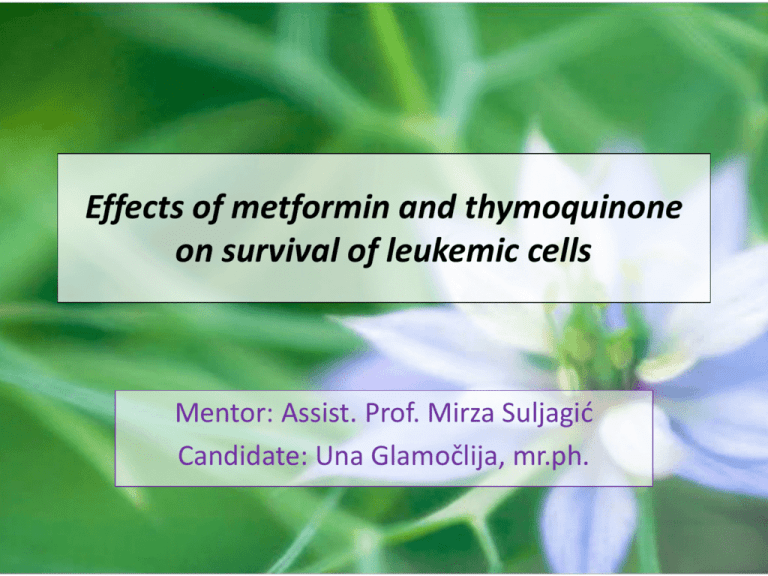
Effects of metformin and thymoquinone on survival of leukemic cells Mentor: Assist. Prof. Mirza Suljagić Candidate: Una Glamočlija, mr.ph. ICGEB grant • Three year project (20162019) which receieved grant from International Centre for Genetic Engineering and Biotechnology, Italy. Introduction • Hematological malignancies: generation of resistance to current treatment options • Combined therapy- molecules with low toxicity and which can target pro-survival pathways in cancer cells Chemotherapy sensitizers • Chemicals which are used to improve effectiveness of drugs in treating tumors • They may reduce the concentration of therapeutic agents and eventually prevent cancer cells to acquire resistance Introduction • Metformin and thymoquinone are potential chemotherapy sensitizers with: – Low toxicity – Pro-apoptotic and anti-proliferative effects in various tumor cells Metformin • the most prescribed anti-diabetic drug in the world, • has proven safety profile, • has been used for over 40 years, • numerous ongoing clinical trials in cancer patients Metformin • Two main mechanisms of action: – Insulin dependent- senzitizes cells to insulin – Insulin independent- activation of AMPK (AMP dependent kinase) Metformin • effects of metformin on cancer cell metabolism are involved in strong interference with the survival of leukemia cells Rosilio C, Lounnas N, Nebout M. et al. The metabolic perturbators metformin, phenformin and AICAR interfere with the growth and survival of murine PTEN-deficient T cell lymphomas and human T-ALL/T-LL cancer cells. Cancer Lett. 2013 Aug 9;336(1):114-26. Metformin • human leukemic cells with increased basal Akt phosphorylation were shown to be resistant to metformin-induced apoptosis • metformin’s anticancer effects can be enhanced by combination with Akt and NF-κB inhibitors Scotland S, Saland E, Skuli N, et al. Mitochondrial energetic and AKT status mediate metabolic effects and apoptosis of metformin in human leukemic cells. Leukemia. 2013 Nov;27(11):2129 Thymoquinone • phytochemical isolated from oil of plant Nigella sativa L., • has reliable safety profile • inhibits NF-κB pathway through direct interaction with the p65 subunit, • inhibits Akt phosphorylation Thymoquinone • increases antitumor effects of gemcitabine, oxaliplatin, doxorubicine, 5fluorouracil , cisplatin and ifosfamide • shows nephroprotective effects when combined with ifosfamide, doxorubicine, and cisplatin. Cell membrane Specific aims • To evaluate the proliferation, viability and apoptosis of leukemic cell lines treated with TQ and metformin separately or in combination • To investigate molecular mechanisms of metformin and TQ effects on pathways controlling survival and proliferation • To determine pro-apoptotic effects in cell lines not responding to currently used therapies Experimental design and methods • In order to evaluate the proliferation, viability and apoptosis of leukemic cell lines treated with TQ and metformin separately or in combination – Effects of metformin and TQ on cellular metabolism and determination of IC50 value: WST-1 assay, the combination index (CI) will be calculated – Cell viability rate will be determined by cell counting using the trypan blue exclusion method – Effects on proliferation will be evaluated by BrdU colorimetric assay. – Proliferation will be also assessed by colony formation assay – Effects on apoptosis will be determined by flow cytometry analysis, after double staining with Annexin-V and propidium iodide (PI) WST-1 assay • The stable tetrazolium salt WST-1 is cleaved to a soluble formazan by a complex cellular mechanism that occurs primarily at the cell surface. • largely dependent on the glycolytic production of NAD(P)H in viable cells. • Therefore, the amount of formazan dye formed directly correlates to the number of metabolically active cells in the culture. WST-1 assay Trypan blue exclusion method BrdU colorimetric assay Colony formation assay • ability of a single cell to grow into a colony (at least 50 cells) • Only a fraction of seeded cells retains the capacity to produce colonies • Colonies are fixed, stained with crystal violet and counted Colony formation assay Flow cytometry Flow cytometry Flow cytometry Experimental design and methods • To investigate molecular mechanisms of metformin and TQ effects on pathways controlling survival and proliferation of leukemic cell lines – Western blotting will be used for identification of specific proteins Western blotting • detects specific proteins in a sample • gel electrophoresis to separate native proteins by 3-D structure or denatured proteins by the length of the polypeptide • The proteins are then transferred to a membrane where they are stained with antibodies specific to the target protein Western blotting • Thymoquinone and metformin low toxicity towards healthy cells Targeting signaling patways • Synergistic effects of thymoquinone and metformin • Overcoming resistance to current treatment options Combinatorial therapy Succesful therapy
